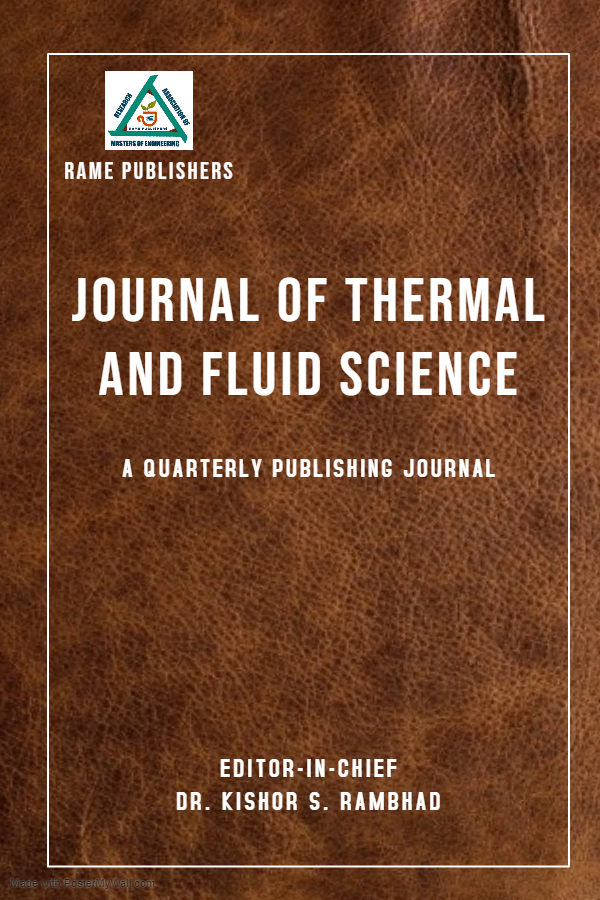Enhancing Solar Power for Sustainable Energy Development in Nigeria
Obed John Dagwa
Volume 1: Issue 1, Oct 2020, pp 32-37
Author's Information
Obed John Dagwa1
Corresponding Author
1Department of Research and Communication, Northeast Development Commission, Nigeria
johnobed74@gmail.com
Abstract:-
This paper explores the solar power enhancement for a sustained energy in Nigeria, the vast problems that limit the enhancement of solar power and the solution to help Nigeria embrace this great development. Papers being published indicate that Nigeria receives very high abundant rays of sunlight. The research explores that Nigeria about 1500PJ from solar and could be available to Nigeria annually from solar energy if solar appliances with 5% conversion were used over only one percent of the Total land areas of the country for about 6 months of a year. As a result of the high fuel consumption that Nigeria has adopted for energy, it would be a giant stride if the country adopts the solar power approach. Nigeria and the world at large need to reposition their policies on power to meet with the global evolutionary process. It is clear that when using the photovoltaic (PV) device, it converts 40.8% of light that comes to it into electric energy. This paper explores a way forward where Nigeria and the globe can achieve this giant stride.Index Terms:-
Enhancing, Solar, Power, Sustainable, Energy, Development.REFERENCES
- Bayar T., “Germany Must Manage Growth and Costs of Renewable Power, IEA says”, Renewable Energy World.com. Retrieved 03/06/2013.
Online - Bilby E. and Zhu C., “UPDATE 2-EU denies breakdown in solar panel talks” REUTERS. Retrieved 3/06/2013
Online - Oghogho I., Olawale S., Adedayo B.A, Dickson E., Keneechi A.V., “Solar energy potential and its development for sustainable energy generation in Nigeria: a road map to achieving this feat”, I.J.E.M.S., Vol. 5 (2) 2014: 61-67
- Dihrab, S. S and Sopian K., “Electricity generation of hybrid PV/wind systems in Iraq”, Renewable Energy 35, 2010, 1303–1307.
Crossref - Federal Ministry of Environment, “Renewable Energy” Federal Ministry of Environment", Retrieved 10/08/2013.
Online - Goffman E., “Why not the sun? Advantages of and Problems with Solar energy”, Proquest Discovery Guides. Retrieved 10/08/2013. at
Online - IVM, “Innoson Vehicle Manufacturing Co. Ltd”, Innoson Vehicle Manufacturing Co. Ltd. Retrieved 03/06/2013 at
Online - Nixon J.D., Dey P. K. and Davies P.A, “Which is the best solar thermal collection technology for electricity generation in north-west India? Evaluation of options using the analytical hierarchy process” Energy 35, 2010, 5230-5240
Crossref - Nnaji and Unachukwue, “Energy efficiency and the Nigerian economy: The need for an integrated approach”. Nigerian Journal of Solar Energy, Vol. 21 pp 179-181, 2010.
- Oseni M.O., “Improving households’ access to electricity and energy consumption pattern in Nigeria: Renewable energy alternative”. Renewable and Sustainable Energy Reviews 16, 2012, 3967–3974
Crossref - Tyagi V.V., Rahim A. A. N, Rahim N.A., and Selvaraj J. A/L., "Progress in solar PV technology: Research and achievement", Renewable and Sustainable Energy Reviews 20 (2013) 443–461.
Crossref - Young D., “EU, China Try to Talk Solar” Renewable Energy World.com. Retrieved 03/06/2013
Online - Federal Ministry of Environment, "Barrier to renewable energy and energy efficiency development in Nigeria is Lack of Policy and Legislation", 2013.
To view full paper, Download here
To View Full Paper
For authors
Author's guidelines Publication Ethics Publication Policies Artical Processing Charges Call for paper Frequently Asked Questions(FAQS) View All Volumes and IssuesPublishing with




